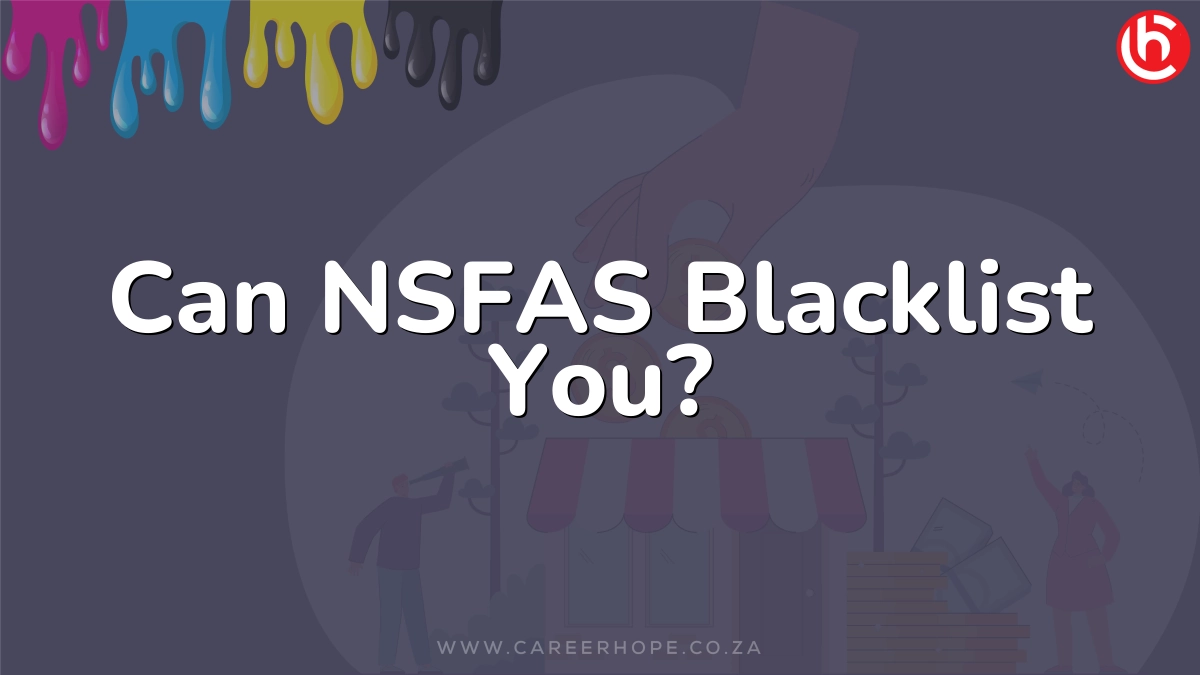The National Student Financial Aid Scheme (NSFAS) is a government-funded organization in South Africa that provides financial assistance to students from underprivileged backgrounds. However, it is important to understand that NSFAS does not directly blacklist individuals for unpaid student loans. Instead, they may hand over delinquent accounts to debt collectors if borrowers fail to make payment arrangements after becoming employed.
Contents
Understanding NSFAS and Student Loan Repayments
NSFAS operates as a revolving fund, meaning that the repayments made by former students are used to fund new applicants. Therefore, it is crucial for borrowers to honor their financial obligations once they have completed their studies and secured employment. By repaying their loans, they contribute to the sustainability of the fund and ensure that other deserving students can access financial aid.
Debt Collection and Consequences of Non-Payment
If a borrower fails to make repayment arrangements after securing employment, NSFAS may hand over the outstanding debt to debt collectors. These debt collectors can then pursue various legal actions to recover the owed amount, such as garnishing wages, attaching assets, or even initiating legal proceedings. Additionally, the delinquent account may be reported to credit bureaus, negatively impacting the borrower’s credit score and potentially making it more difficult to obtain credit or loans in the future.
Avoiding Debt Collection and Blacklisting
To avoid debt collection and potential blacklisting, borrowers are advised to proactively contact NSFAS and make payment arrangements as soon as they become employed. NSFAS is typically willing to work with borrowers to establish reasonable repayment plans based on their financial circumstances. By demonstrating a commitment to repayment, borrowers can avoid potential legal consequences and maintain a good credit standing.
People Also Ask
Can NSFAS take legal action against borrowers?
Yes, NSFAS can take legal action against borrowers who fail to make repayment arrangements or honor their payment obligations. This may include initiating legal proceedings, garnishing wages, or attaching assets to recover the outstanding debt.
Will my credit score be affected if I don’t repay my NSFAS loan?
Yes, failure to repay an NSFAS loan can negatively impact your credit score. Delinquent accounts may be reported to credit bureaus, making it more difficult to obtain credit or loans in the future.
How can I establish a repayment plan with NSFAS?
You can contact NSFAS directly and explain your financial situation. They are typically willing to work with borrowers to establish reasonable repayment plans based on their income and expenses.
What happens if I move and change my contact information?
It is crucial to keep NSFAS updated with your current contact information, including address and phone number. Failing to do so may result in missed communications and potential legal consequences for non-payment.
Can I get additional financial aid from NSFAS if I haven’t repaid my previous loan?
It is unlikely that NSFAS will approve additional financial aid if you have an outstanding unpaid loan. You will typically need to clear your debt or establish a repayment plan before being eligible for further assistance.
Conclusion:
while NSFAS does not directly blacklist borrowers, failure to repay student loans can lead to debt collection efforts, legal consequences, and negative impacts on credit scores. By proactively communicating with NSFAS and making repayment arrangements, borrowers can avoid these issues and contribute to the sustainability of the fund for future students in need.

